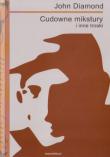
|
Biblia » Nowy Testament » NT - spojrzenie krytyczne Jesus The Immoralist Thomas Jefferson thought that Jesus was the greatest moralist who ever walked on water. President Bush declared that Jesus is his guide and philosopher par excellence. And so did-and do-millions of others throughout the ages. But was he? On balance, was he really an immoralist? An objective examination of the Gospels gives us contradictions, koan-type sayings, mysteries within mysteries, false prophecies, and scare tactics worthy of terrorists. Just as there are sins of commission, so there are sins of omission-for which Jesus is most guilty. Jesus says nothing about ending war, stopping capital punishment, protecting the environment, eliminating gambling, banishing slavery, staunching racial hatreds, administering justice, abolishing gender discrimination, promoting the pleasures of sex, encouraging freedom and democracy, treating the sick with anything but magic, holding together families, easing the pains of anxiety, comments about the ideal beauty, knowledge and truth. He explains by way of parables: „To you [Jesus' disciples] it has been given to you to know the secrets of the kingdom of heaven, but to them it has not been given" (Mt.13.11). So instead of straightforward talk, these parables allow whatever spin anyone wishes to put on them. His ethics resembles a collage-a bit of incomplete advice here and there, pasted together by theologians who believe they know the mind of Jesus better than he did himself. What kind of precepts does this immoralist advance? While Jesus does insist that the Father be worshiped with „all your heart, and with all your soul, and with all your mind" — Matthew 22.37 — yet in John 10.30, Jesus declares that "I and the Father are one." His teaching has elements of being too narrow and too harsh. Just consider the following assortment: · Jesus sent his twelve disciples on missionary work, admonishing them: „Go nowhere among the Gentiles, and enter no town of the Samaritans, but rather go to the lost sheep of Israel" (Mt. 10.5-6). · „If any town does not receive you or listen to your words, shake off the dust from your feet as you leave that house or town. Truly, I say to you, it shall be more tolerable on the day of judgment for the land of Sodom and Gomorrah than for that town" (Mt. 10.14-15; 11.20-24). · „Whoever denies me before men, I will deny before my Father who is in heaven" (Mt. 10.33). · He castigates scribes and Pharisees: „But woe to you, scribes and Pharisees, hypocrites!" (Mt. 28.13) · He excoriates Jews who had been arguing with him: „You are of your father the devil … He was a murderer from the beginning … he is a liar ...and the father of lies." (John 8.44) · He denies the burial of the father of one of his disciples, this being one of the most ancient and important of family duties: „Follow me [said Jesus], and leave the dead bury their own dead." (Mt. 8.22) · He encourages self-mutilation: „Not all men can receive this precept, but only those to whom it is given. For there are eunuchs who have been so from birth, and there are eunuchs who have been made eunuchs by men, and there are eunuchs who have made themselves eunuchs for the sake of the kingdom of heaven.. He who is able to receive this, let him receive it." (Mt. 19.11-12) · He preaches improvidence: „Do not lay up for yourselves treasures on earth, where moth and rust consume and where thieves break in and steal." (Mt. 6.19-20) · He advocates hatred of family: „If anyone comes to me [Jesus] and does not hate his own father and mother and wife and children and brothers and sisters, yes, and even his own life, he cannot be my disciple." (Luke 14.26) · In a string of unrealistic admonitions, Jesus reverses true morality: „But I say to you, do not resist one who is evil. But if anyone strikes you on the right cheek, turn to him the other also; and if anyone would sue you and take your coat, let him have your cloak as well; and if anyone forced you to go one mile, go with him two miles. Give to him who begs from you, and do not refuse him who would borrow from you." (Mt. 5.38-42) And „Judge not, that you be not judged." (Mt. 7.1) · And lastly, this from the last verse of one of Jesus' morality lessons, the parable of the pounds: „But as for these enemies of mine, who did not want me to reign over them, bring them here and slay them before me" (Luke 19.27) As you have seen, Jesus does not prescribe moral standards that contribute to our happiness. He issues commands, not supported by rational persuasion but by threats of heaven and hell. If these are the words of the greatest moralist the world has ever produced, then the world as seen through the eyes of Jesus would be in worse shape than it already is. (Originally published in the American Rationalist ©)
« NT - spojrzenie krytyczne (Publikacja: 18-05-2003 Ostatnia zmiana: 21-09-2003)
str. 2442 |
|||||||||||||||||||||||||||||||||||||||||||||||||||||||||||||||||||||||||||||||||||||||||||||||||||||||||
| [ Regulamin publikacji ] [ Bannery ] [ Mapa portalu ] [ Reklama ] [ Sklep ] [ Zarejestruj się ] [ Kontakt ] Racjonalista © Copyright 2000-2018 (e-mail: redakcja | administrator) | ||



